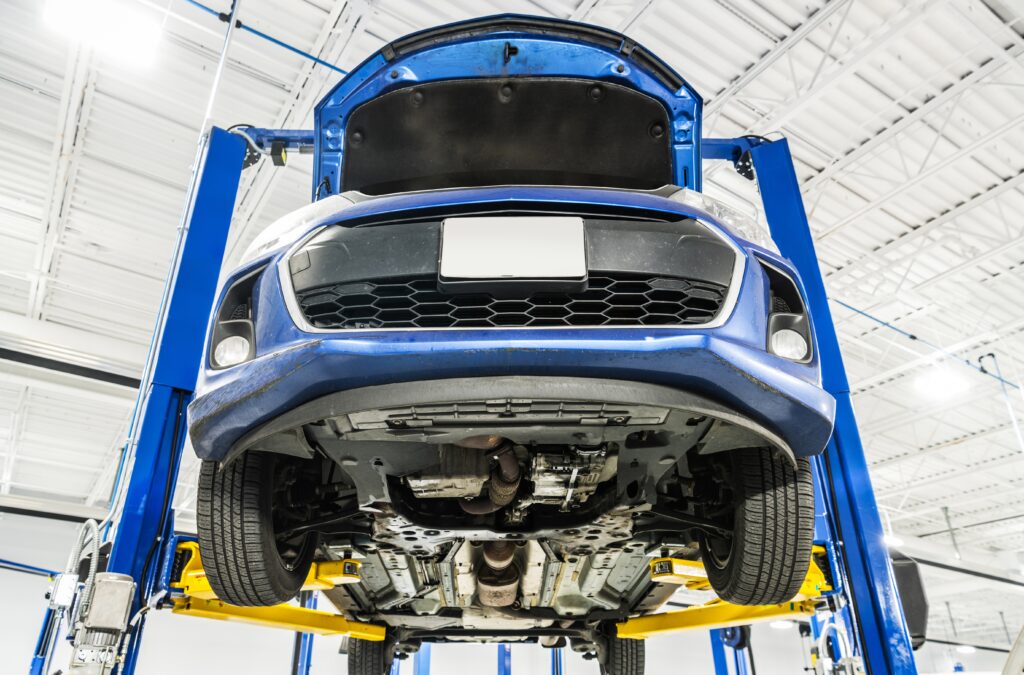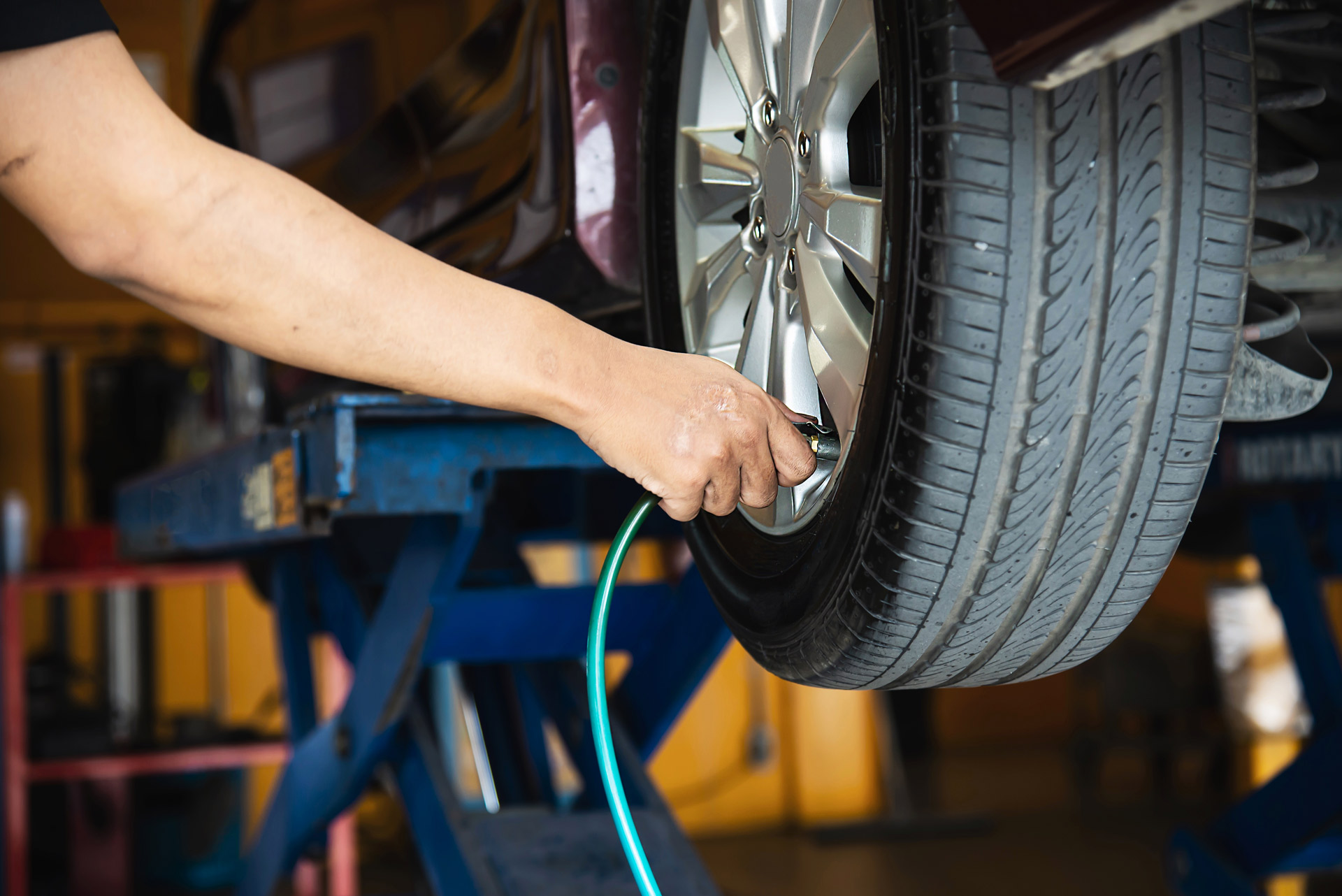

Car lifts are essential tools for independent auto repair shops, professional mechanics, and serious auto enthusiasts. Determining which lift best suits your business or individual needs can prove challenging, but replacing a lift—especially at the last minute—can cause even more stress. Reviewing your options with time on your side can help you make a more informed decision.
The guide below features a detailed breakdown of the costs associated with purchasing and installing a lift based on the most common types used in the automotive repair industry. The following cost analysis incorporates real pricing estimates based on car lift brand, weight capacity, and installation requirements, addressing some of the hidden costs that accompany a new lift. As you optimize shop workflow and maximize your equipment’s ROI, rely on Identifix Direct-Hit® for data-driven insights on repair times to make smarter purchasing decisions when upgrading your shop.
Shop efficiency is a major concern for professional mechanics and auto repair shop owners. Beyond making mechanics more efficient—which Identifix can also help accomplish—car lifts must be just as effective in enabling mechanics to complete their work. When reviewing car lifts, keep the following points in mind.
Tailor the type of car lift you purchase to your individual or business needs. Auto shop owners should consider the size and weight of the vehicles their shop commonly serves, in addition to the type of access they’ll need to components like the wheels, interior, and undercarriage. The same considerations apply to individuals, just on a smaller scale.
Ceilings should be at least 12 feet high to accommodate a car lift. Don’t forget to account for space above any overhead beams, forward of and behind the vehicle, and the workspace envelope when calculating a lift’s total footprint. Remember, you’ll need to navigate comfortably around the car and have enough space to keep tools nearby as you work.
Like any good business decision, it’s best to determine your car lift budget before comparing products. In addition to accounting for a lift’s initial cost, consider the long-term value and return on investment. How can a versatile car lift from a reputable brand help grow your business?
While investing in a quality-built and safe car lift is essential for good business practices, lifts sporting the Automotive Lift Institute (ALI) certification label can help you avoid potential issues with local building code inspectors. Some—not all—local building code offices require car lifts to be ANSI/ALI ALCTV certified. Before you bring your lift layout plans to life, speak with your local building code office to ensure the lift you purchase is compliant.
The following characteristics factor into the cost of a car lift, regardless of the model you purchase. Weigh your options in terms of these factors to make a more informed buying decision. Below, learn more about each factor and why it’s important.
Hydraulic lifts, whether two-post, four-post, or scissor lifts, are the most common among auto repair shops and DIY mechanics. Scissor lifts tend to be the most affordable, followed by two-post and four-post lifts. Generally speaking, car lifts can range from $1,500 to $15,000 or more.
Basic car lifts range from $1,500 to $5,000, depending on the lift style you choose. While you can find quality car lifts around the $5,000 mark, you’re more likely to spend closer to $10,000 for a more capable model. Top-of-the-line car lifts tend to cost $10,000 or more based on how you equip them from the manufacturer.
Scissor car lifts can cost between $1,000 and $5,000 and can hold an average of 7,000 pounds. They are often categorized by their ability to extend high into the air, with full-rise scissor lifts rising the highest. Some scissor lifts engage the body or frame, while others incorporate runways for cars to drive onto.
Two-post car lifts can hold up to 30,000 pounds and cost between $2,000 and $6,000. Symmetrical and asymmetrical car lifts are the most common two-post types. Most two-post lifts feature either a stabilizing base plate between the two posts or an overhead crossbeam connecting them.
Auto shops and individuals working on heavier, larger vehicles often require a four-post lift, which can cost from $2,500 to upwards of $10,000. These wheel-engaging car lifts, designed to lift up to 40,000 pounds, can have either an open or closed front for greater maneuverability. For best results, four-post lifts should be installed on a large, level concrete pad.
Brand reputation and build quality significantly impact a car lift’s price and longevity. Among the top car lift brands, BendPak and Rotary are generally considered to offer high-quality performance. While AMGO’s prices are slightly higher, Dannmar—now part of BendPak—and Atlas offer a respectable balance of affordable pricing and performance.
BendPak offers a wide range of scissor, two-post, and four-post lifts that can accommodate various weight capacities. For example, the soon-to-be-released BendPak SP-7XEF scissor lift hoists up to 7,000 pounds, while the two-post 10APX and four-post HD-9ST lift up to 20,000 and 40,000 pounds, respectively. The HD-9ST comes in at just over $5,000, while the SP-7XEF nears $10,000.
Rotary also stocks scissor, two-post, and four-post car lifts, but you’ll have to contact them for exact pricing. The brand’s RLP77 scissor lift and SPOA10-AV two-post lift have a similar weight capacity, with the scissor lift reaching up to 14,000 pounds. The four-post SMO14 model can also lift up to 14,000 pounds and comes with an advertised $400 rebate.
AMGO and Atlas both offer scissor, two-post, and four-post lifts. Atlas is more transparent about its pricing, with the two-post BP10000X costing just over $4,000 and the SLP9K full-rise scissor lift set at $8,299. The AMGO BP-10, as advertised outside of AMGO’s website, is priced below the Atlas BP10000X, but the four-post PRO-12 is closer to $4,500.
Dannmar’s selection is more limited. The $4,095 two-post D2-10A can handle vehicles of up to 10,000 pounds. For those who prefer a full-rise scissor lift, the DLR-6 holds up to 6,000 pounds and costs $2,000 less than the D2-10A.
Many car lifts incorporate standard safety features, including automatic locking systems and overload protection. However, a longer features list typically results in a higher price, which may be worth paying if those features align with your needs. Alternatively, purchasing a lift with upgrade provisions can help you tool up in the future should your shop’s growth demand it.
Although not always the case, most premium car lifts come with a robust manufacturer’s warranty that often covers the lift’s frame and moving parts. Paying a little extra to either obtain or extend such a warranty can prove worthwhile, especially for lifts used for commercial purposes. Lifetime warranties are even more of a boon.
As with any product, the customer support that comes with your purchase can sometimes prove more invaluable than any warranty coverage. Poor customer service can detract from even the most well-made car lift, especially if locating and ordering replacement parts is challenging at best. Paying more for a car lift doesn’t necessarily grant you access to better customer support, so it’s a good idea to evaluate the brand’s reputation before you make your final decision.
Purchasing a car lift is an expense worth budgeting for, but it’s all too easy to overlook or miss the related costs, which can quickly add up. For example, you may need to modify your shop slightly to accept the lift or optimize its use. Below are the three most common hidden costs associated with a car lift.
Ideally, the concrete beneath your new car lift should be level and at least four to six inches thick. The ceiling should also be at least 12 feet high—if not higher—to accommodate the lift. If these requirements are not met, the lift installation crew may need to modify your shop space to accept the lift, with the final modification total varying based on the required work.
Professional car lift installation can cost between $300 and $1,000—or more—depending on the type of lift you purchase and the existing provisions for its placement. For example, installation experts may need to perform electrical work to power your lift. Setup may also be included in this hidden cost.
Proper maintenance is key for car lifts, which rely on many moving parts to function. Lifts should be inspected and lubricated often to ensure proper function. Repairs made with quality parts can help prevent costly downtime.
A car lift is one of the most critical pieces of equipment your auto repair business can invest in. Pair your new car lift with equally powerful auto repair shop software solutions and services available from Identifix. Contact us to learn more about our diagnostic and repair solutions, including Direct-Hit and Direct-Hit Mobile.
Did you like this article? Find more great content at identifx.com/blogs and solera.com/blog.

Identifix is the leading provider of automotive repair shop solutions and sevices designed to improve shop profitability and repair outcomes.
"*" indicates required fields